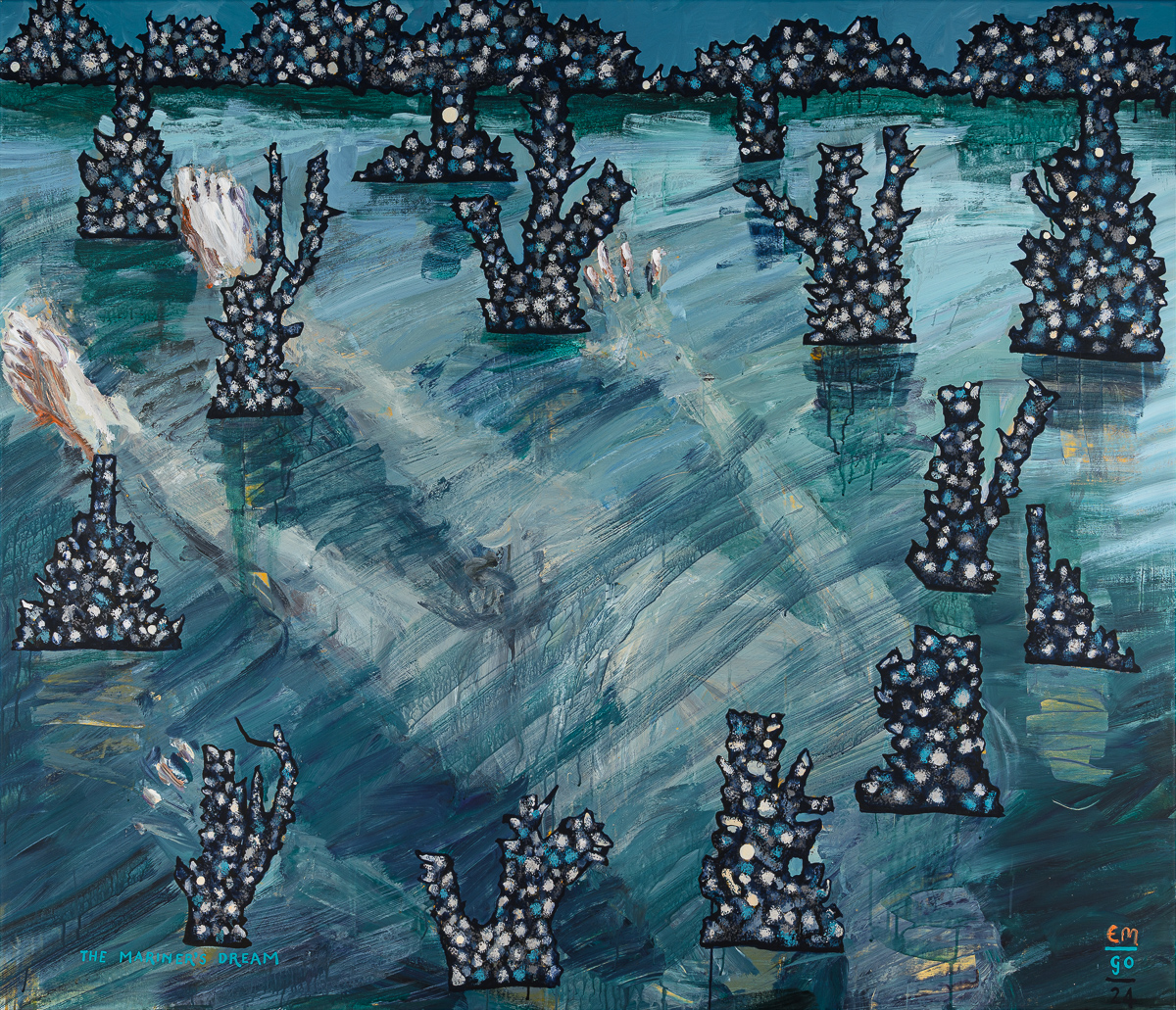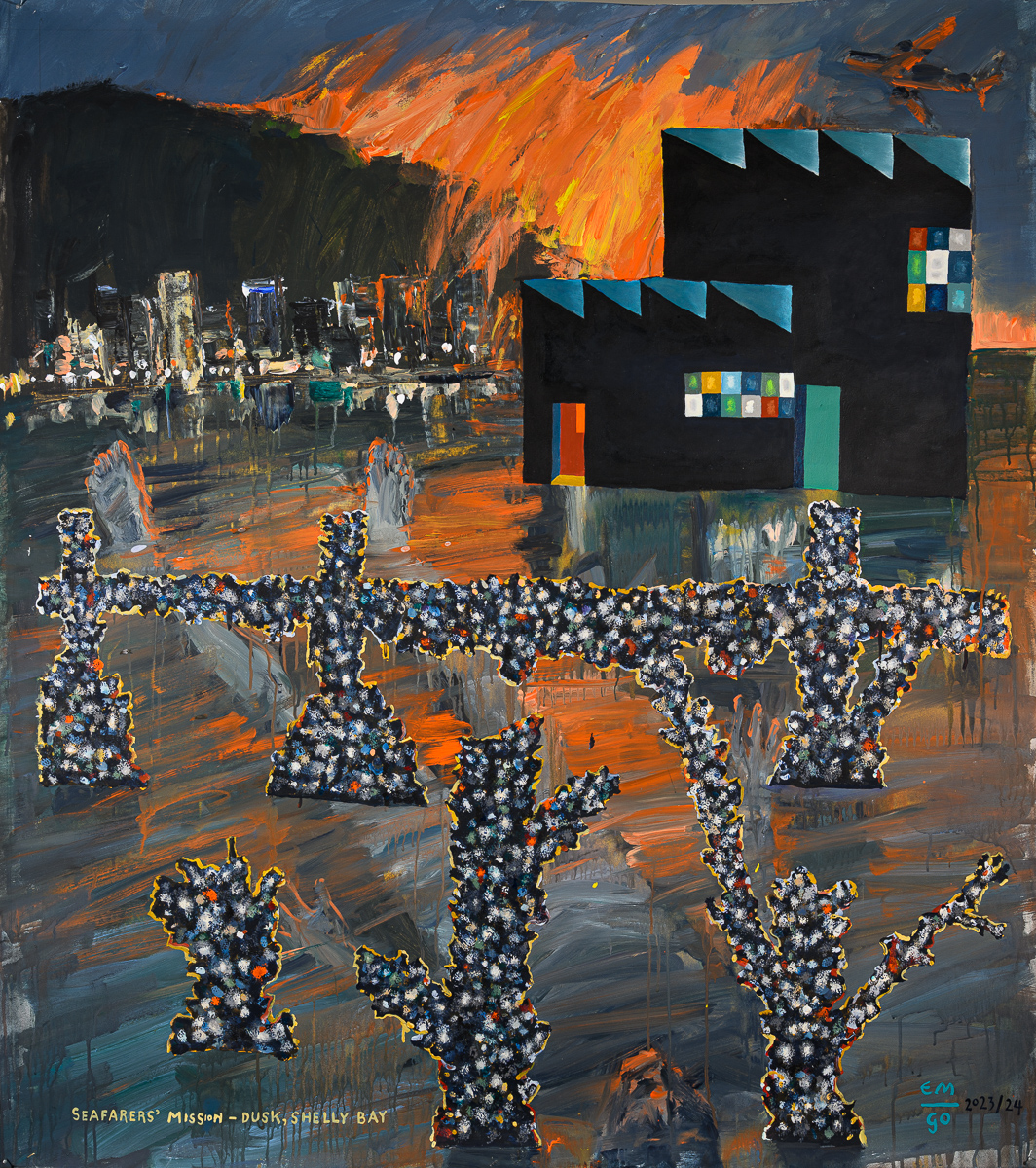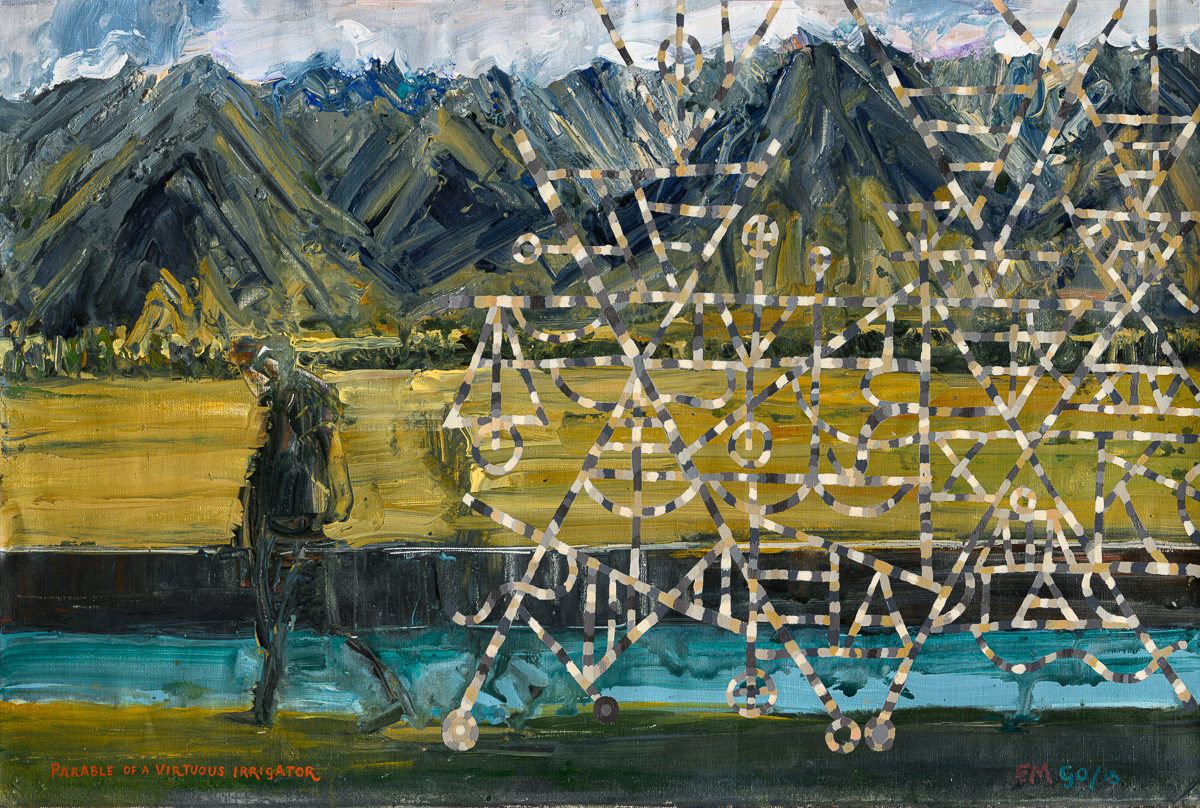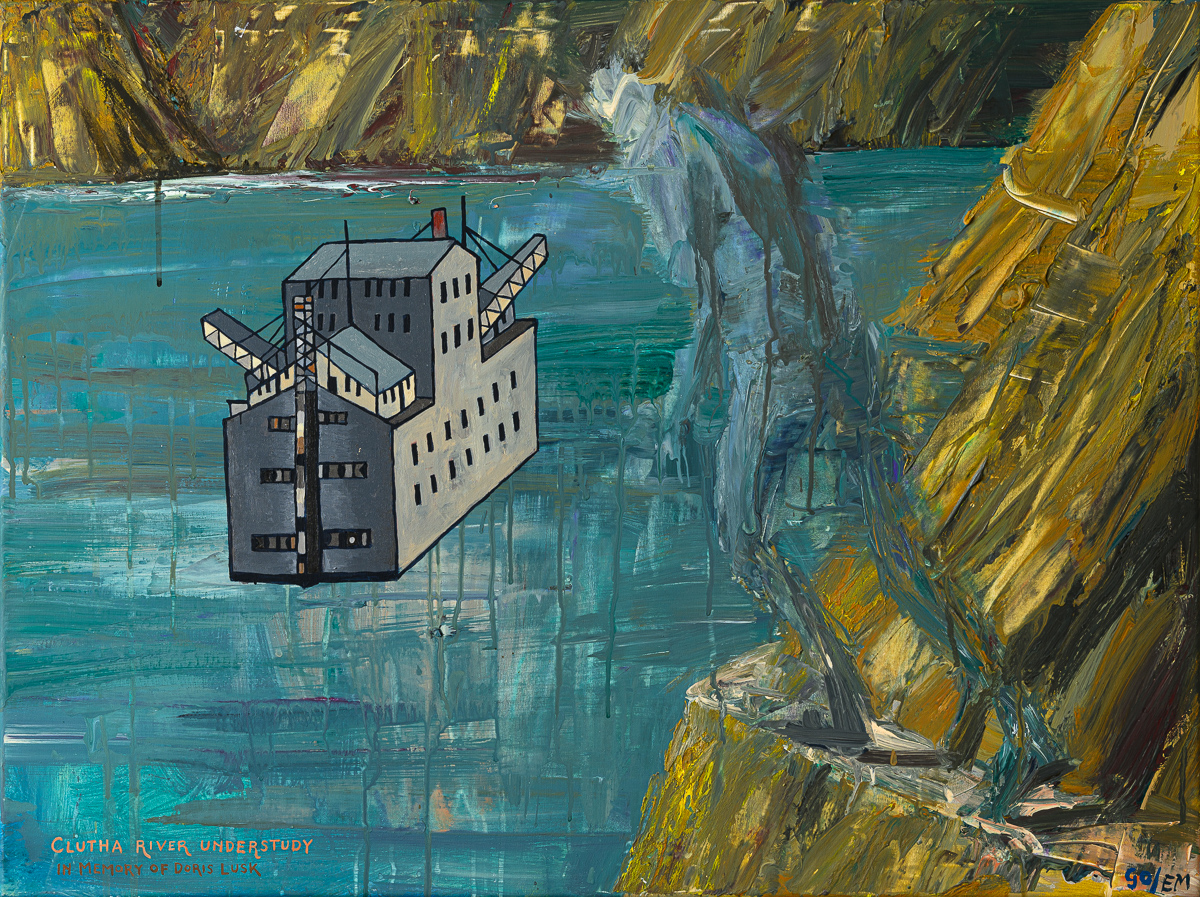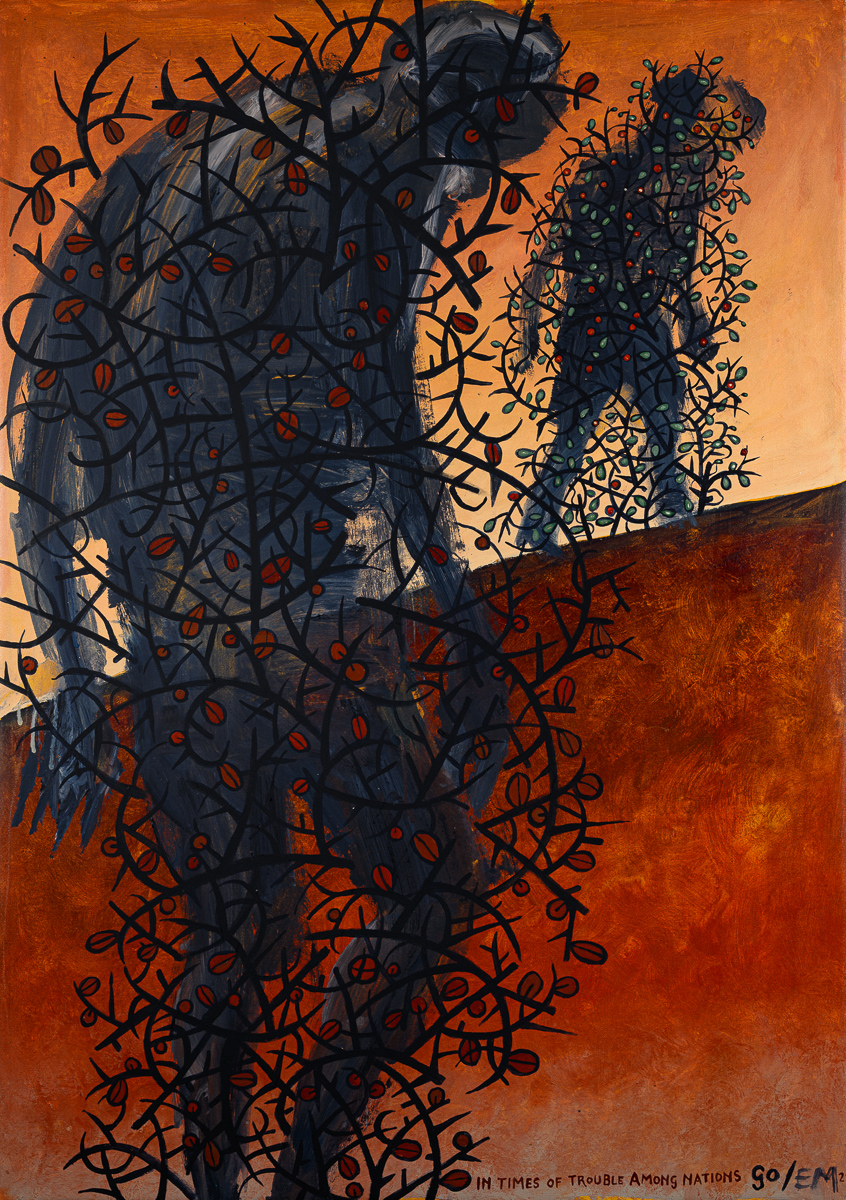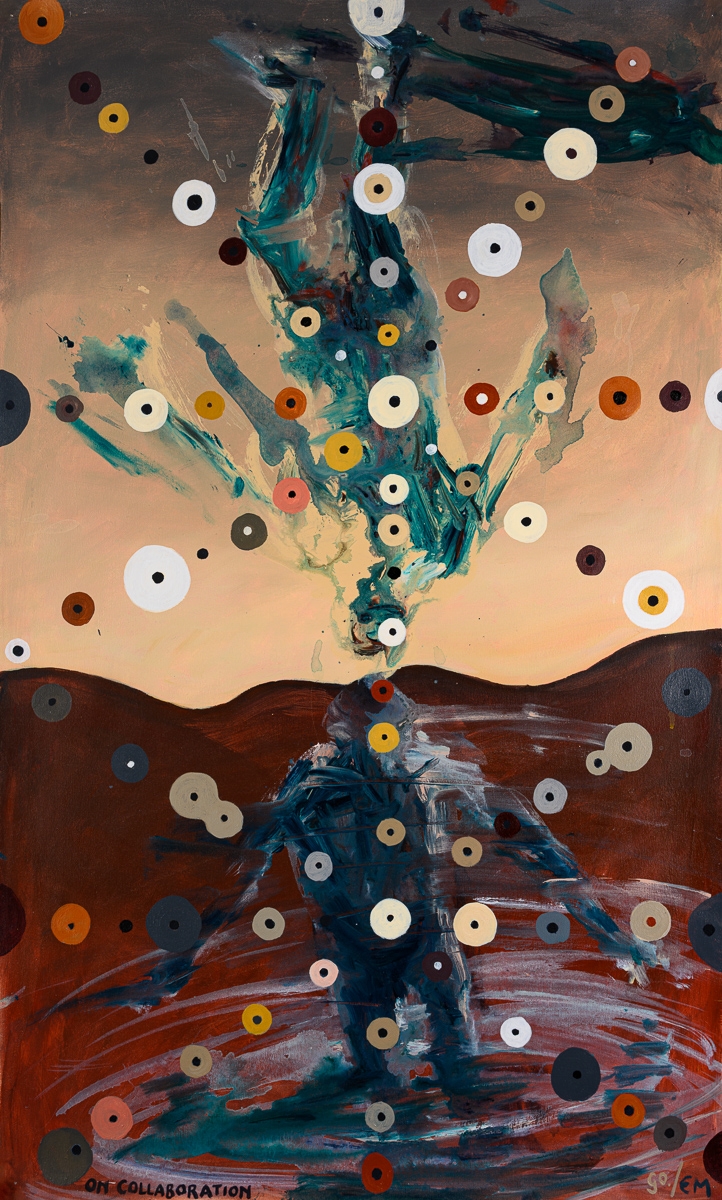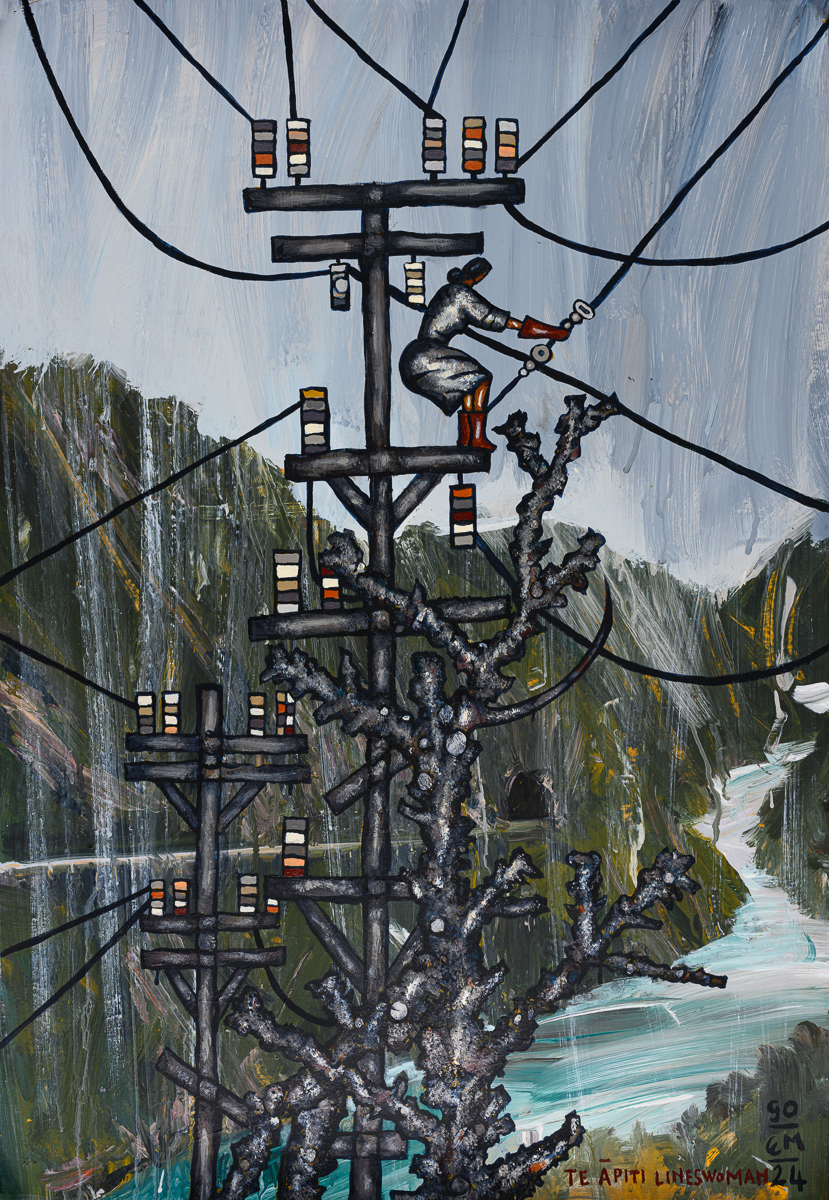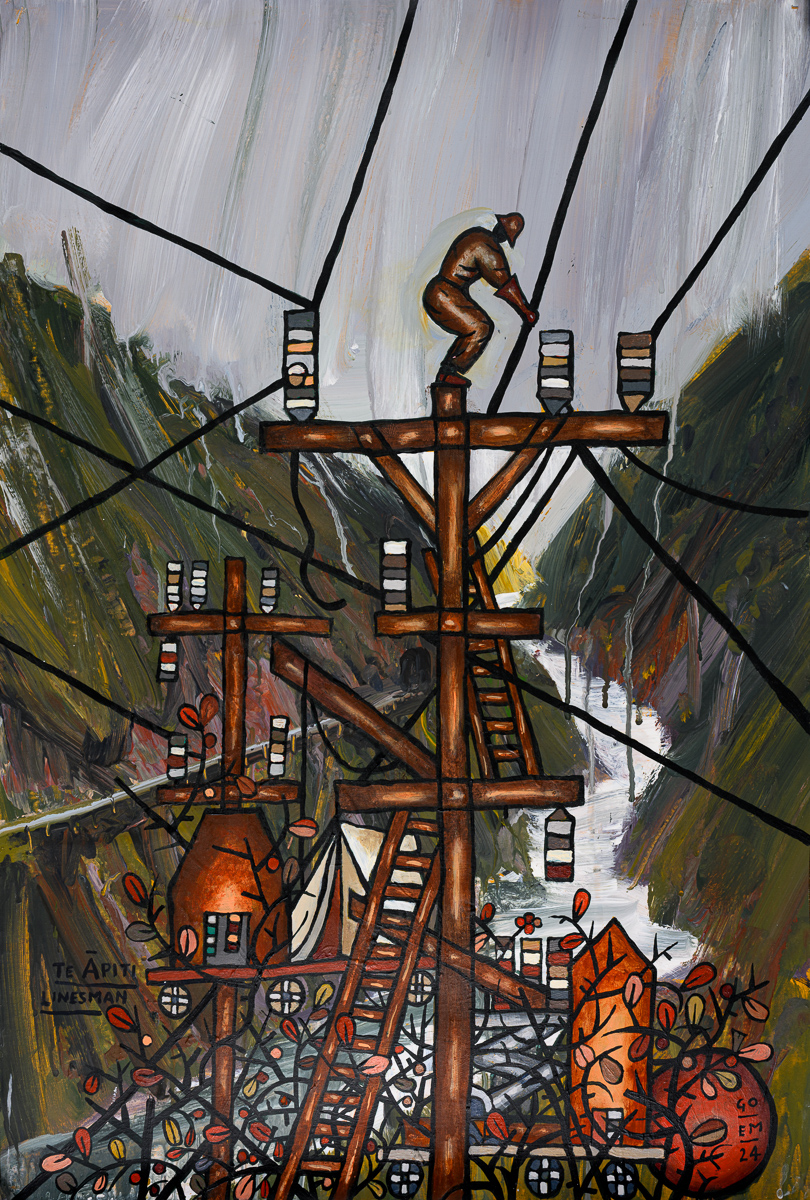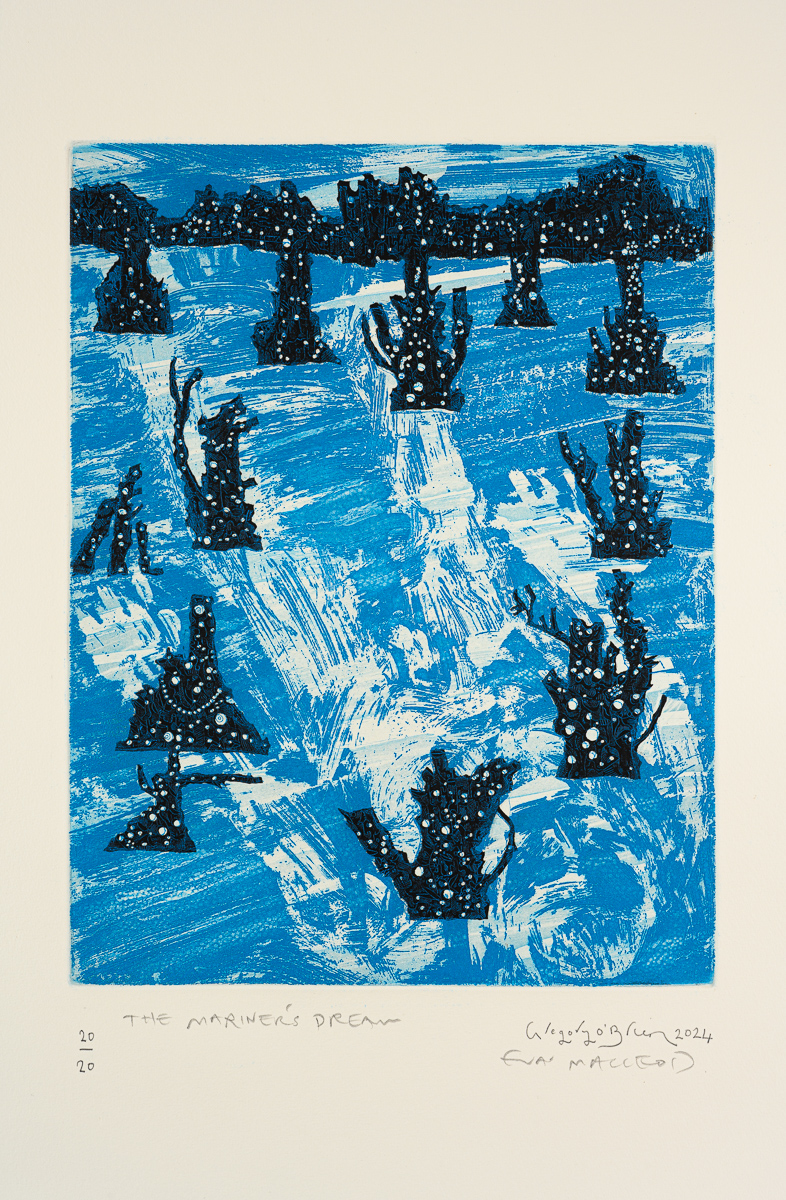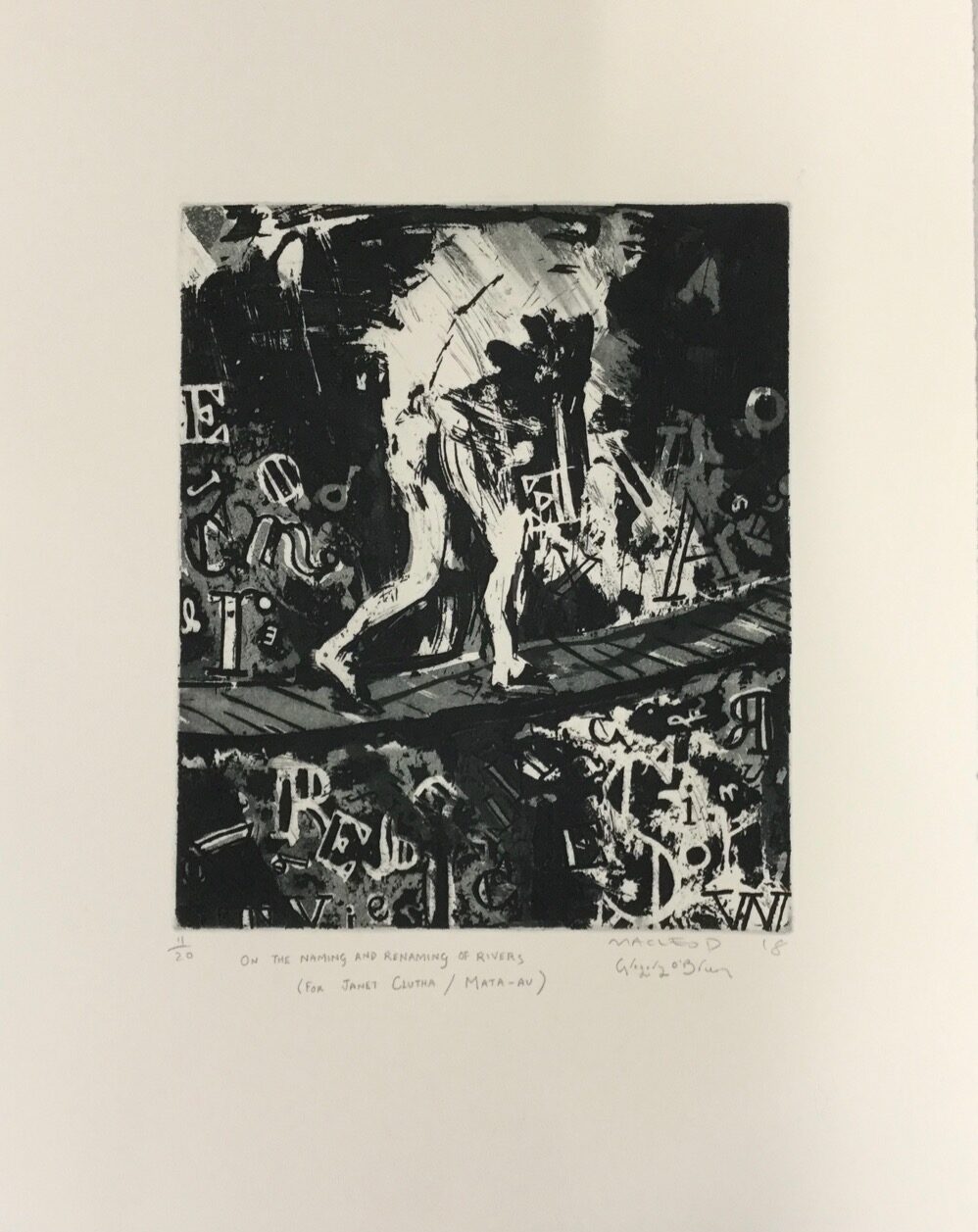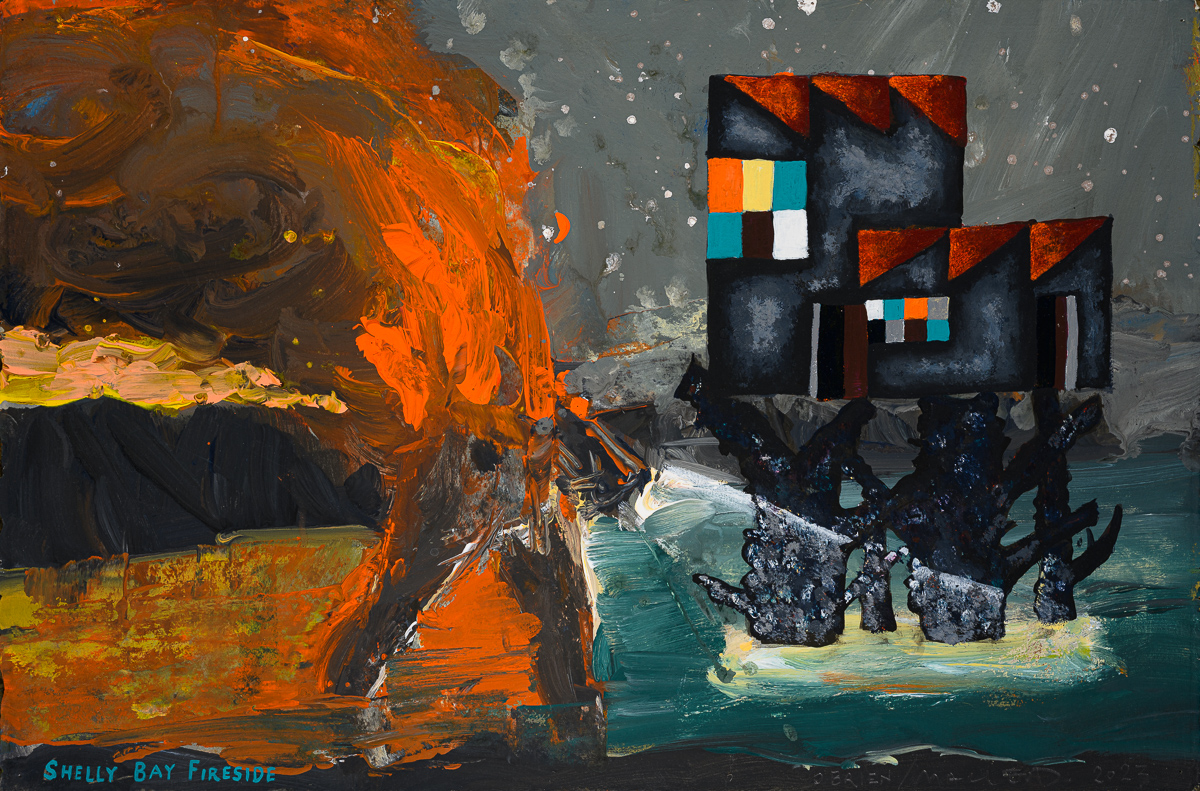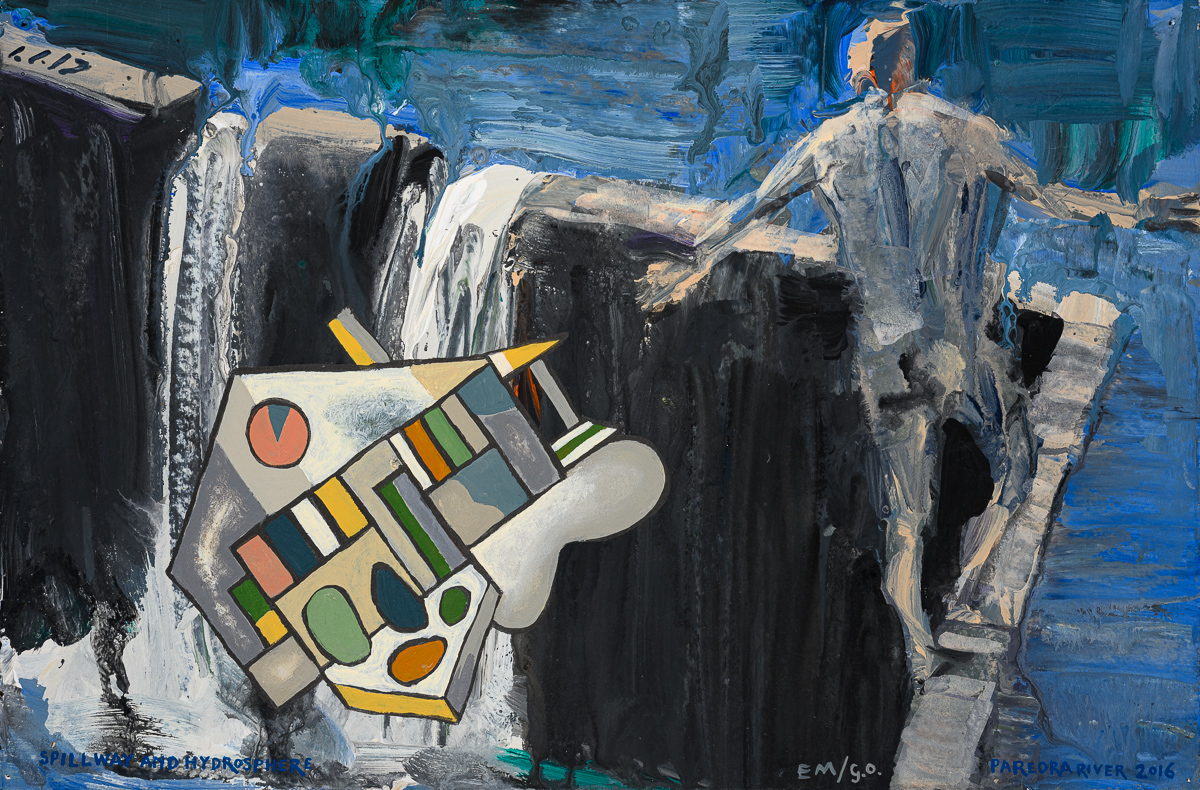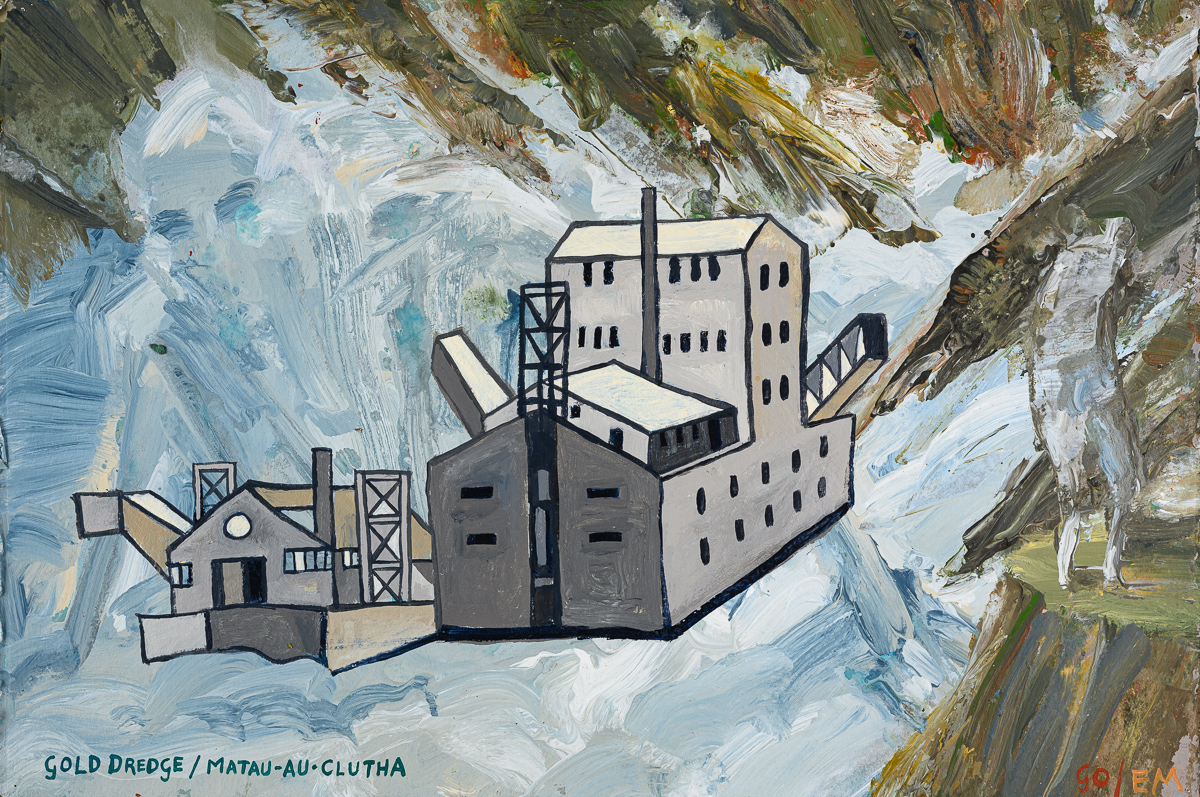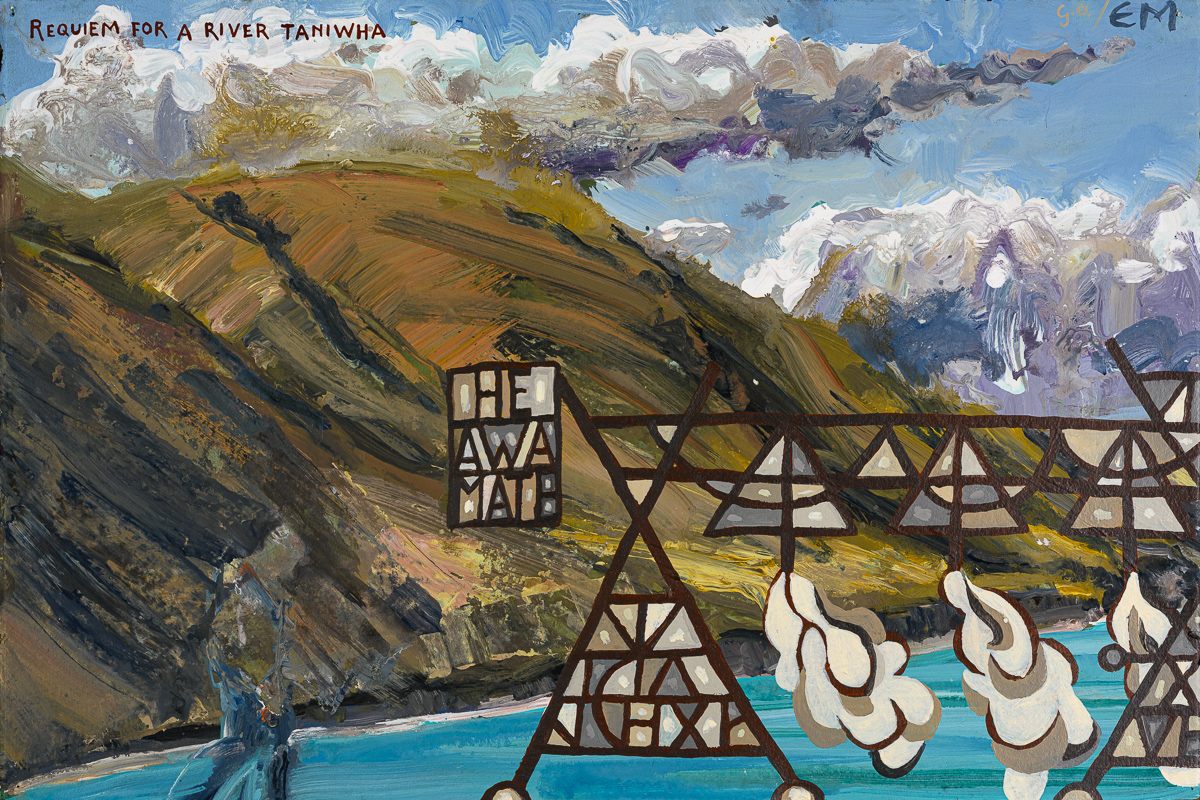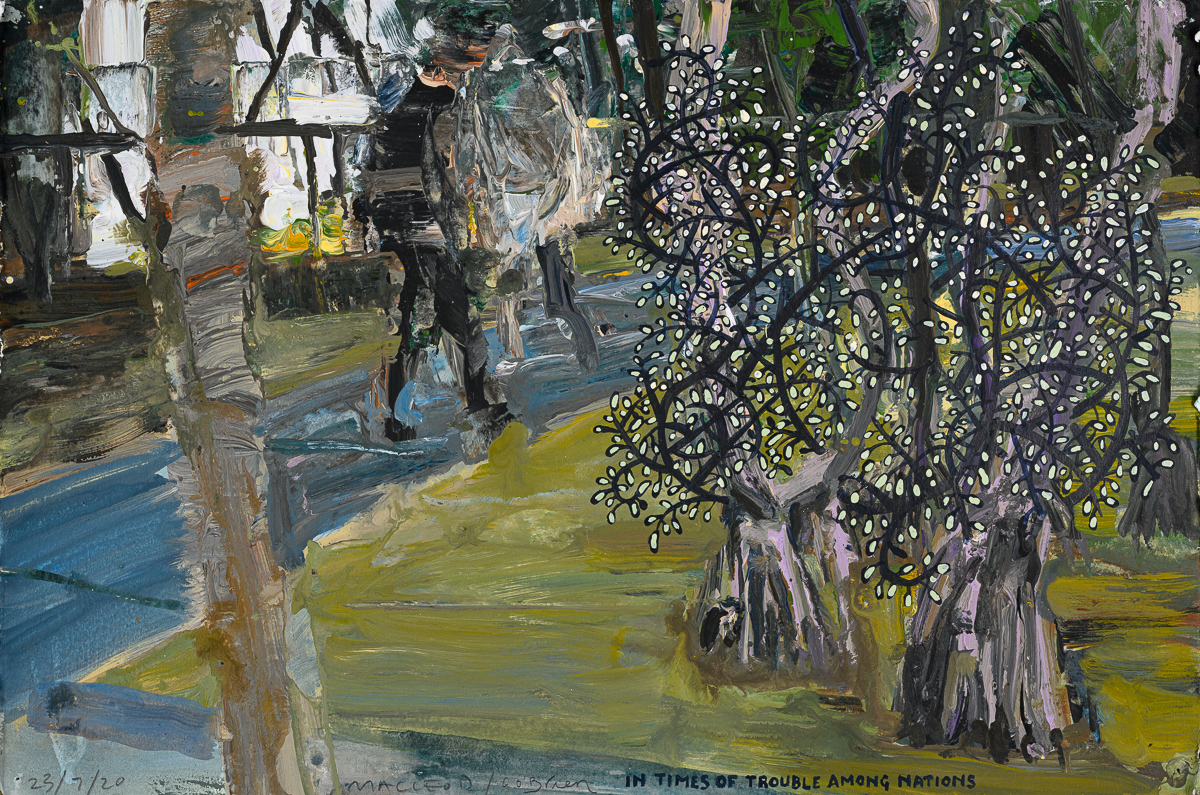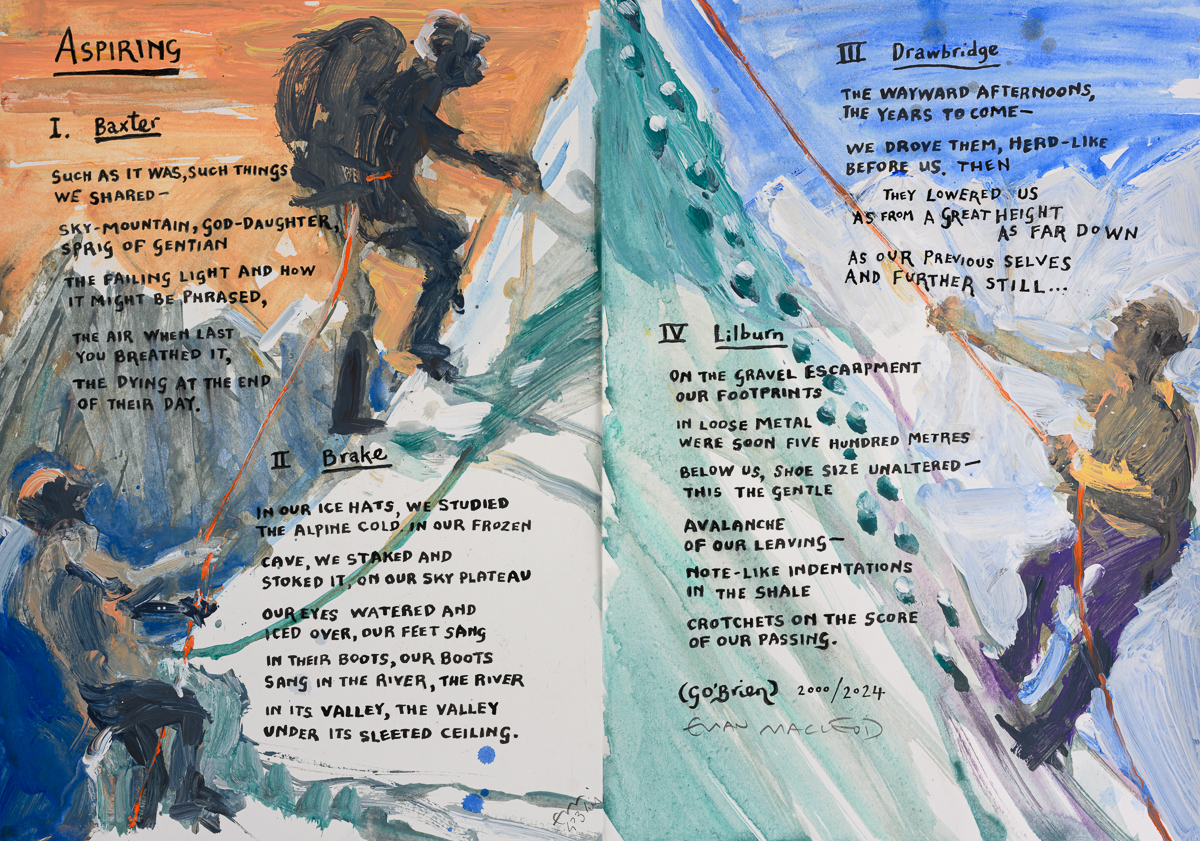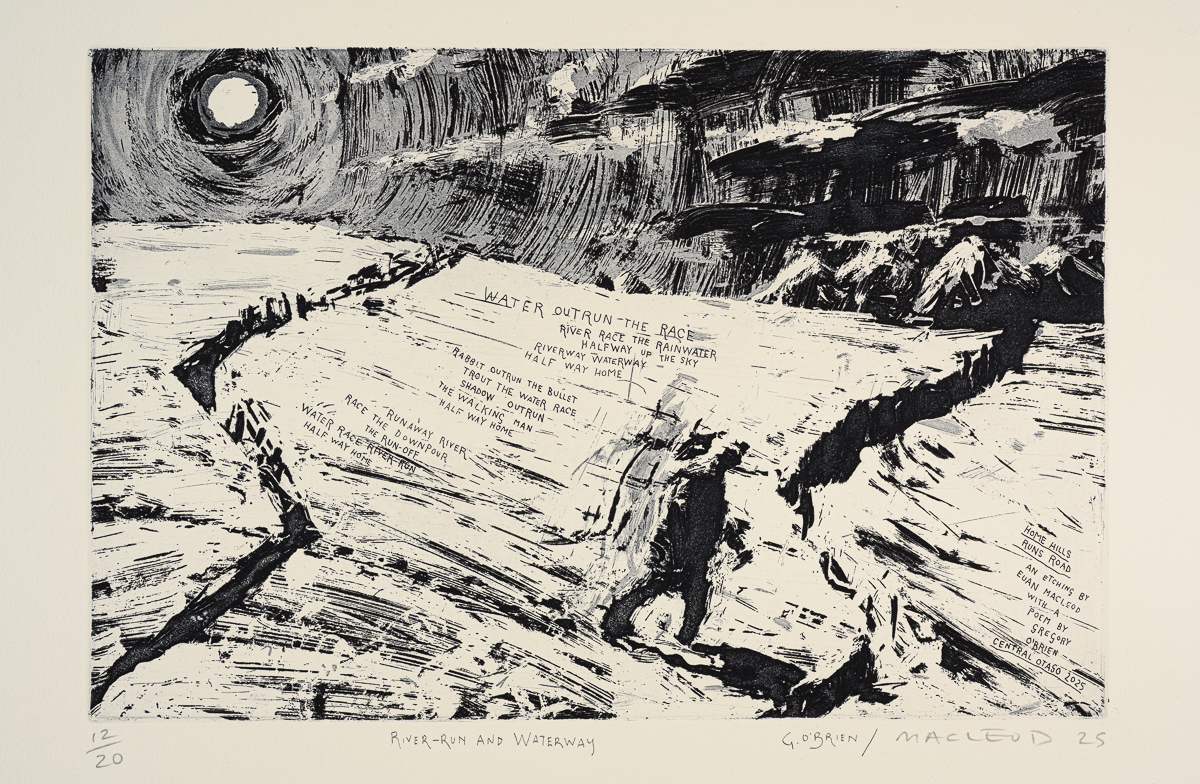Euan Macleod and Gregory O’Brien
In times of trouble among nations
20 May – 7 June 2025
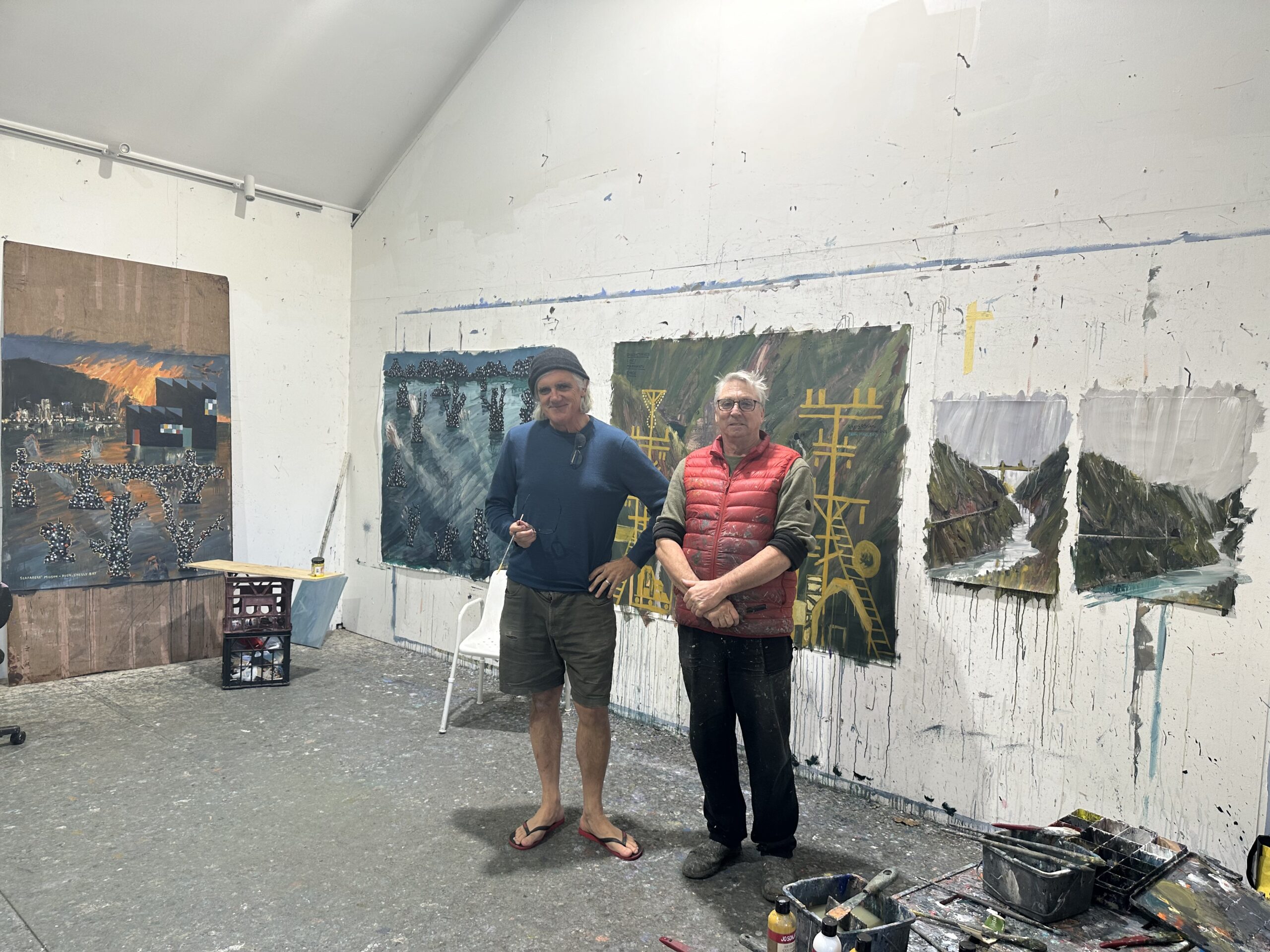
An introduction to the exhibition by Gregory O’Brien
When James K. Baxter wrote his poem ‘In times of trouble among nations’ in 1972, he had in mind Vietnam, the Cold War, the increasing gap between rich and poor… Just over a half century later the global situation is no less confronting. It isn’t surprising then that Euan’s and my collaborations gesture towards a comparable crisis in the human spirit, an emergency in terms of the social as well as the international order, and in the relationship between humanity and the natural environment.
To be a figure in this often beleagured landscape is a matter of not a little anxiety and some complication. In which direction are we headed? And to which voices are we listening? Are we communicating? The two paintings Te Āpiti Lineswoman and Te Āpiti Linesman hark back to ‘the falling powerpoles held / only by wire’ which concluded the first poem in my first collection of poetry (this was back in 1987), in which a much earlier hitch-hiking version of myself is deposited on the verge of State Highway One and finds himself staring ‘back at all those / miles of lines and twisted poles / wondering how word ever gets through’. In the case of our Te Āpiti lines-persons, Euan’s accustomed figure-in-a-landscape has ascended to the top of a power pole (echoes of, and all praise to, the great Leslie Adkin). While the view is undoubtedly better from up there, the precarious nature of existence is only amplified.
Elsewhere in our collaborative body of work, Euan’s familiar figure-in-a-landscape becomes a figure-in-a-warming-ocean or striding across a melting glacier. In The Mariner’s Dream, the figure is laid out beneath a blanket of ocean, with barnacle-encrusted pilings laid around like candles surrounding a coffin. In Seafarer’s Mission—Shelly Bay, a fiery sunset blazes beyond the glimmering night-bather and the warehouses of Shelly Bay, Wellington (a complex destroyed by arson in 2023). New Zealanders are an ocean people and, in that respect, we are all seafarers and mariners. We are all floating in the knowledge (or ignorance) of all that is unfolding around us—in these, our environmentally troubling times.
Clutha River Understudy, Parable of a virtuous irrigator and various other works hint at different environmental concerns: the ruinous pivot irrigators of Central Otago, the ghost-like remnants of goldmining dredges on the Clutha (Mata-au) River, water quality issues in the Pareora Stream… Our two-part drawing, On Aspiring, includes a poem inspired by an ill-fated alpine expedition over the summer of 1949-50, during which photographer/film-maker Brian Brake, painter John Drawbridge, composer Douglas Lilburn and poet James K. Baxter spent a week rained-in at the Mt Aspiring Hut. (Some years back I scripted a documentary, Aspiring, which revisited that unlikely alpine excursion and Brake’s unrealised dream of creating a ‘cinematic poem’. My poem is an offshoot from that project.)
When painting together, Euan and I produce work that strikes me as more outward-looking and overtly political than our solo productions. Might this be because the works emerge from a broader, social space rather than emanating from our more private, subjective worlds? In these works, I see/hear us talking to each other about things that matter. The paintings trace various lines of communication—not only between the two of us, but also between Australia and New Zealand, between Western Art and antipodean reality, between Euan’s painterly manner and my graphic line—between our differing pasts, and the meeting of those two strands of being on the surface of the painting.
Over the past two decades, I’ve spent an inordinate amount of time looking at and into Euan’s paintings. Despite the darkness, the excoriating self-analysis and the occasional apocalyptic flare-up, I find there is something strangely heartening about his work. And I marvel, from a very close proximity, at the recasting of those qualities in the present collaborative context. Thomas Merton once wrote that ‘the pessimistic outlook does nothing to change the future’. Euan’s figures have intent—a sense of ‘future’, even in these troubled times—and something far, far broader than self-belief. Maybe a kind of faith in the fact of being alive. Alive in a body, in a place, at a specific time. If only we can find within ourselves the imaginative power, clarity and resilience to admit the limitations of the human condition, fall down and get back up, and pronounce, as poet Lorine Niedecker did:
No matter where you are
you are alone
and in danger—well
to hell
with it.
Euan Macleod and Gregory O’Brien began making collaborative works shortly after the launching of Euan Macleod—the painter in the painter, a monograph by Greg which was published by Piper Press, Sydney, in 2010. Collaborating was Euan’s idea, ‘a way of keeping the conversation alive’ after two years of intense art-related discussion. Since then, their joint works have featured in numerous exhibitions including: ‘Collaborations—Euan Macleod and Gregory O’Brien’, Watter’s Gallery, Sydney, September-October 2018; ‘Local Knowledge—collaborative paintings by Euan Macleod and Gregory O’Brien’ touring exhibition shown at: Millenium Gallery, Blenheim, November-December 2020; Eastern Southland Art Gallery, Gore, October-December 2021; He Waka Tuia, Invercargill, February-March 2022; Ashburton Art Gallery, Ashburton, October – December 2022; Te Manawa, Palmerston North, August 2024-March 2025. Collaborative paintings were also featured in the touring exhibition ‘Wai/Water—the Water Project’ which toured to the following galleries between 2018 and 2021: Ashburton Art Gallery, Hastings Art Gallery, Canterbury Museum, Suter Art Gallery, Pataka Art + Museum, Sarjeant Art Gallery. Collaborative paintings are held in the collections of Eastern Southland Art Gallery, Gore; The Forrester Gallery, Oamaru; Millenium Gallery, Blenheim; Ashburton Art Gallery, Te Manawa, Palmerston North, and the Arts House Trust.
